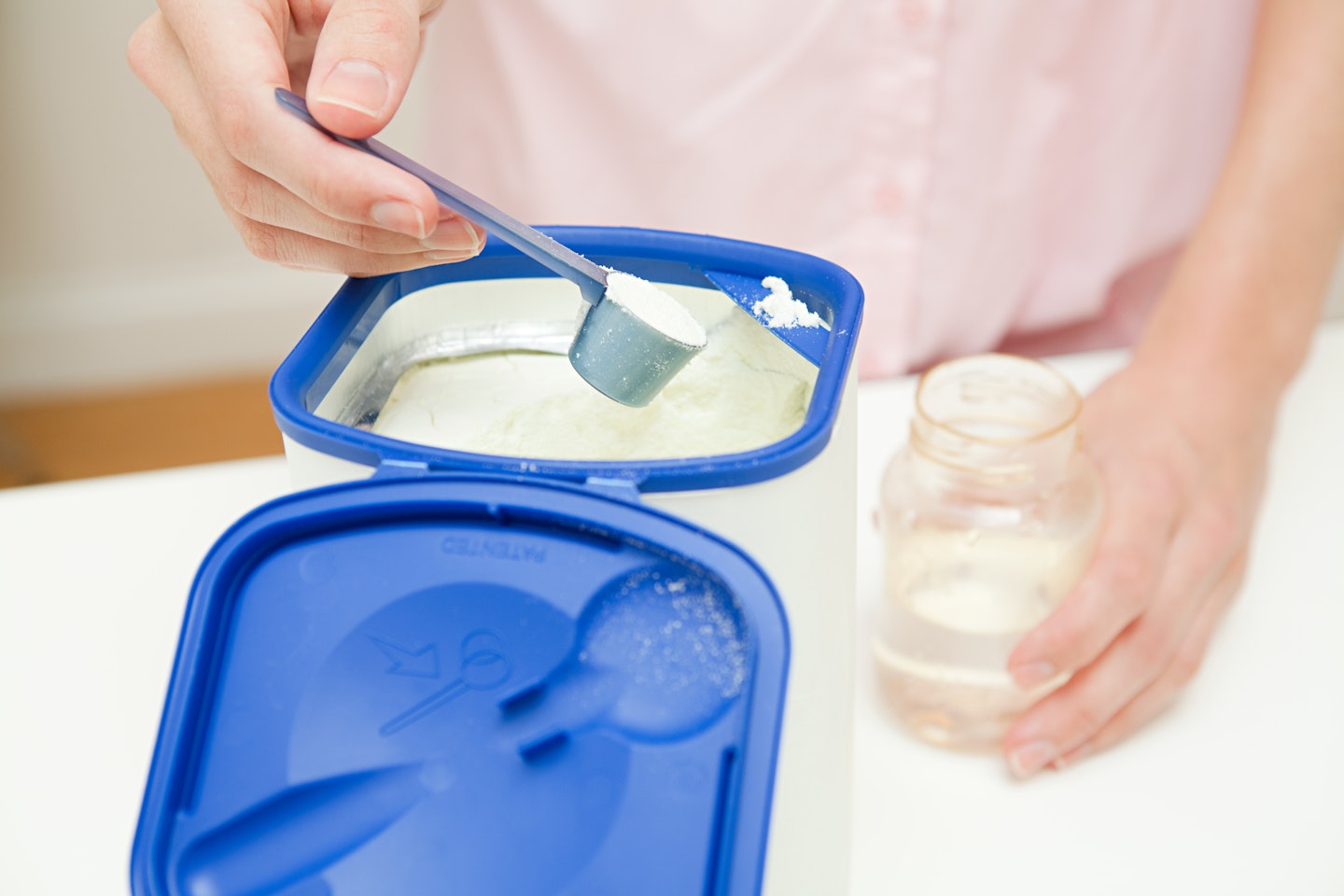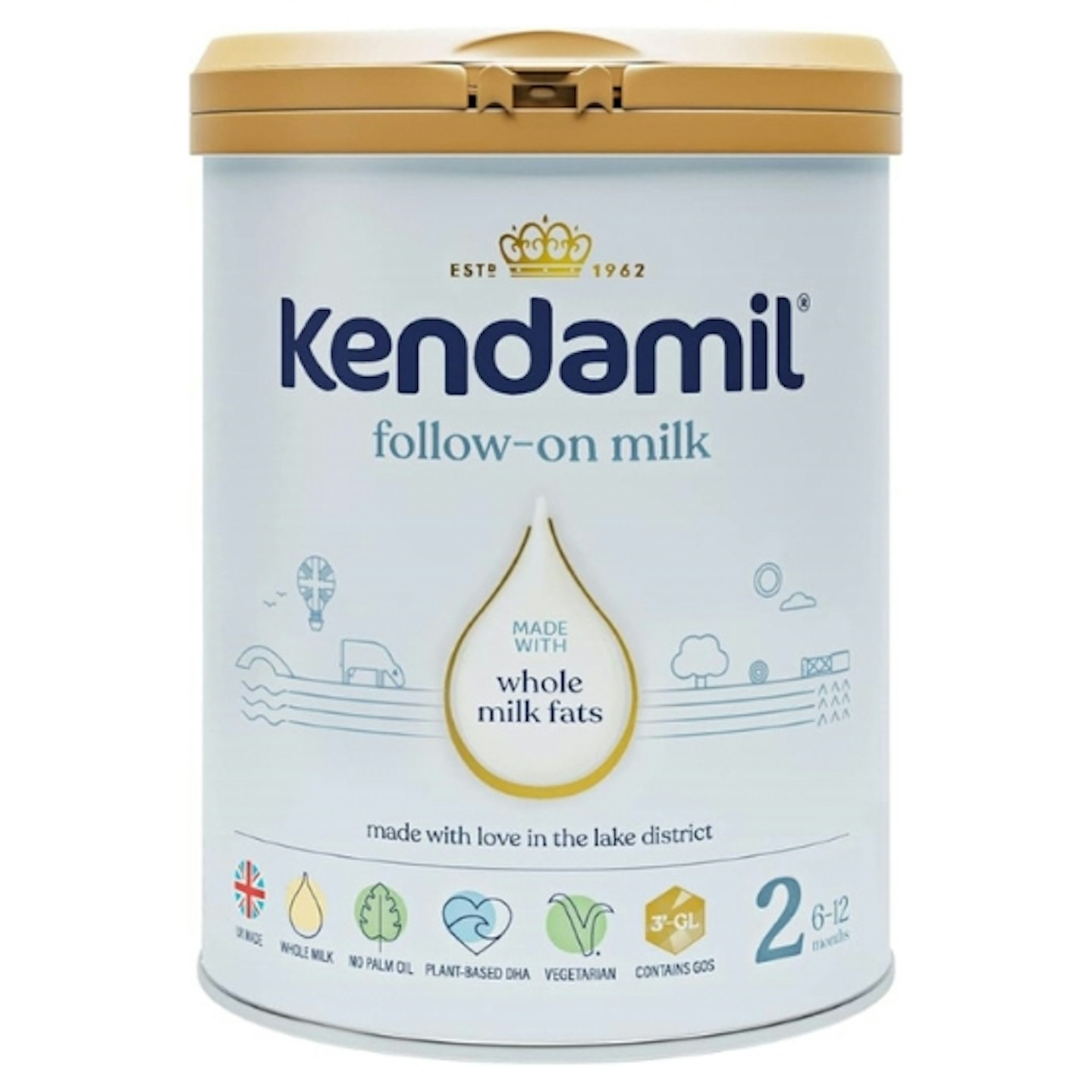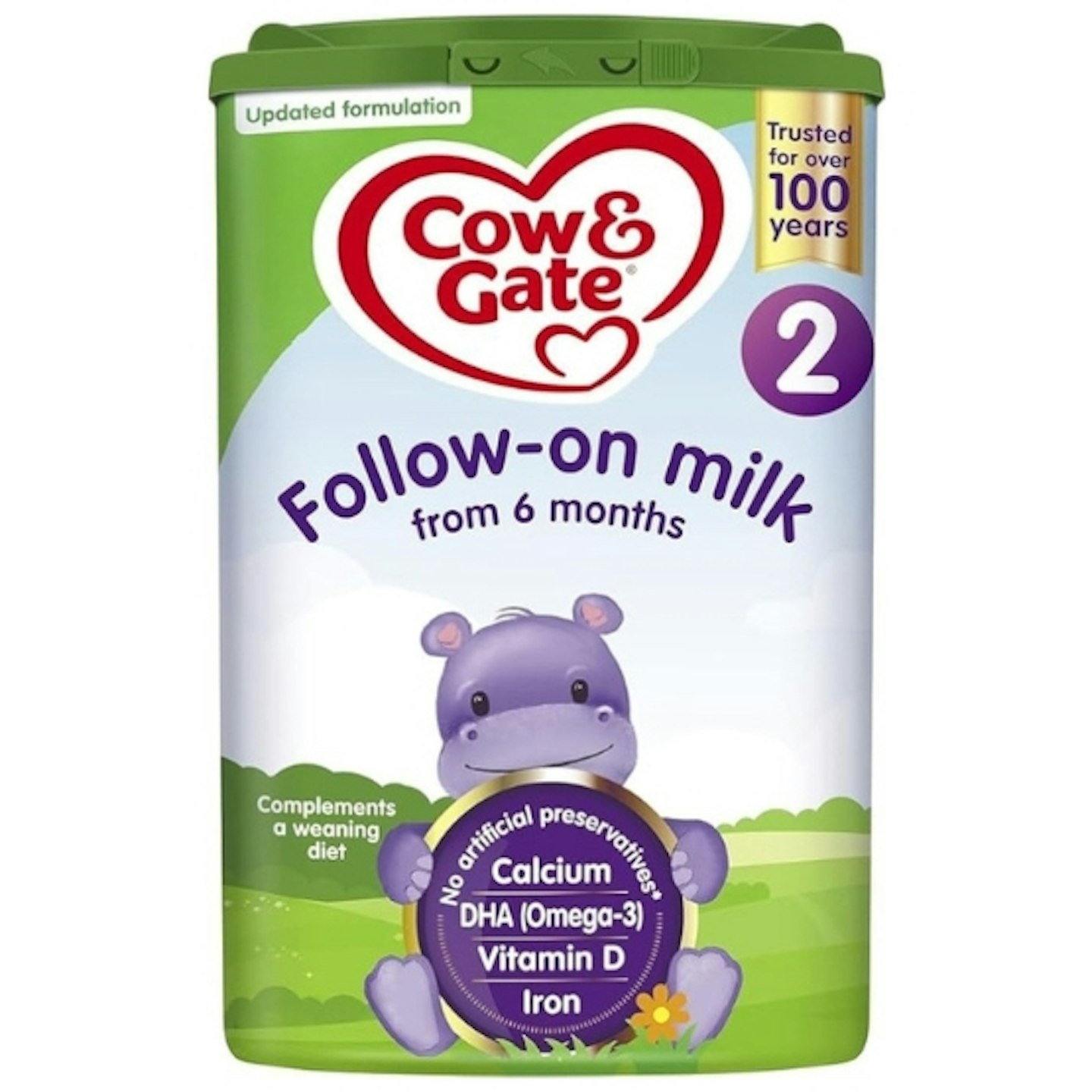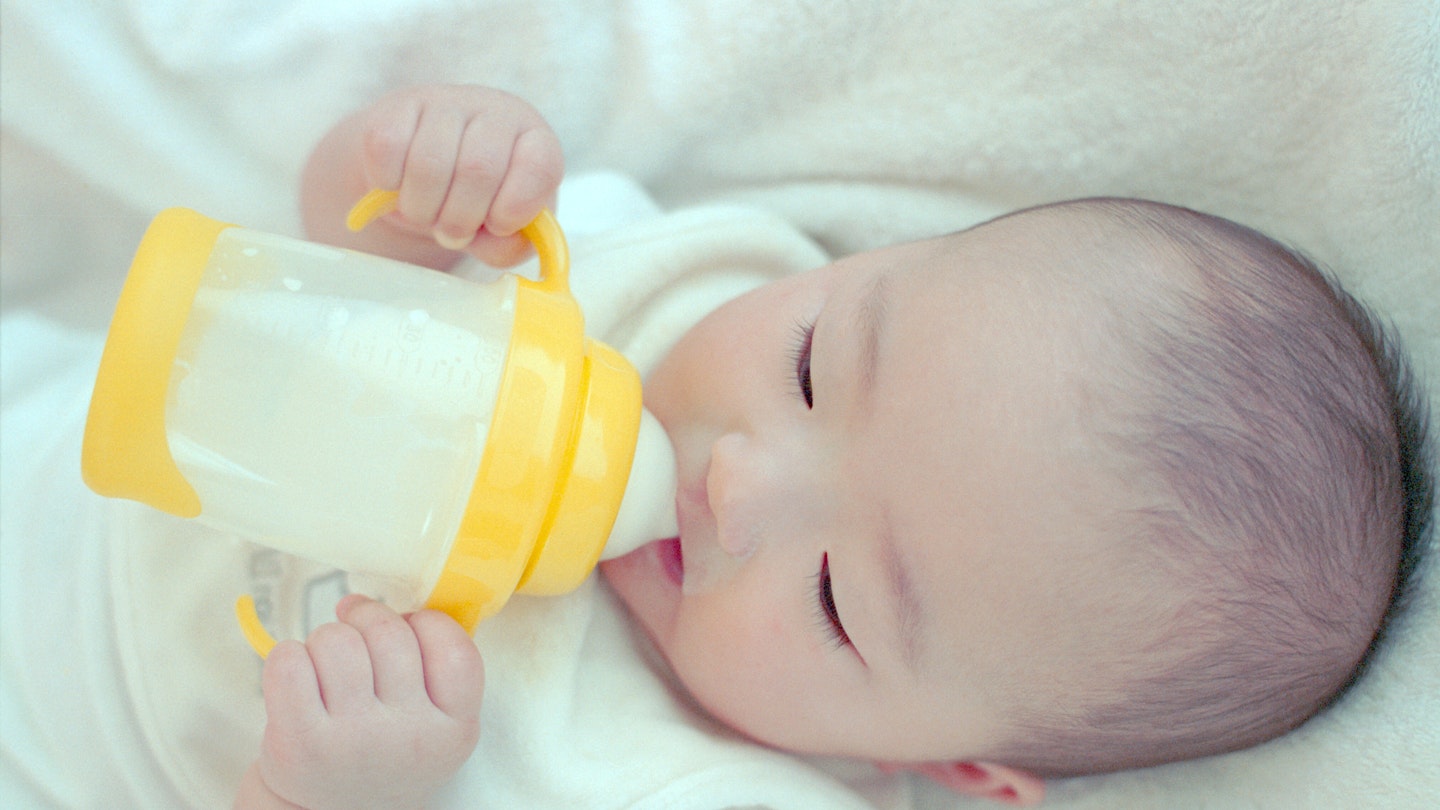Whether you're strictly formula feeding or combining formula with breastfeeding, it's natural to want to find the best baby formula for your little one.
According to a survey by Which?, 56% of mothers with children under three years old wanted to know the differences between formula brands, 46% wanted to know how formula compares with breast milk and 27% wanted to know whether price reflects quality.
There's no real difference between baby formulas sold in the UK. The makeup is slightly different in organic formulas from brands like HiPP and SMA, but even in non-organic formulas the pesticide level is very low.
Read more: 11 mums open up about a time they were shamed for feeding their baby formula

Types of formula milk
Formula comes in two different forms - a dry powder that you mix with water, or a ready-to-feed liquid. Read-to-feed liquids are convenient, but they do tend to be more expensive than powder formulas.
It's worth nothing that, according to NHS guidelines, formula milk does contain all the nutrition your baby needs for growth and development, but it doesn't contain the same health benefits as breastfeeding, such as protection from infections, which is why it is recommended that you breastfeed your little one for the first 6 months of their life.
Hungrier baby formula
This kind of formula can be used if your baby struggles to settle or stay full on normal formula. However, there's no concrete evidence to prove this. "Hungry baby" formula contains more casein than way, making it harder to digest and it's thought this keeps your baby full for longer.
Anti-reflux formula
Anti-reflux formula is thickened to prevent babies from spitting up their milk. It's widely available in supermarkets and pharmacies, but it's usually only used on the recommendation of your health visitor or midwife. Please consult with your health visitor or midwife before considering this type of formula.
Comfort formula
Comfort fomula can be drunk from birth and contains partially broken down cow's milk. This makes the milk much easier for your baby to digest, aiding feeding through problems like colic or constipation, although there's no evidence to suggest that this works for all babies.
Follow-on formula
Follow-on formula is suitable for babies that are 6 months and older. There's no research that shows that switching to follow-on milk has benefits for your baby, so you can continue to use first infant milk until your baby is one, then switch to whole cow's milk.
Good night milk
Good night milk is suitable for babies that are 6 months or older and usually contains cereals. It's sold as a special milk for babies to have at bedtime, but there's no evidence to suggest that babies sleep or longer or settle better after having it.
Growing up milk
Growing up milks are suitable for babies 1 year old and upwards, and are usually marketed as an alternative to cow's milk. There's no evidence to suggest that growing up milks are more nutritionally beneficial than cow's milk, which your baby can drink once they reach age one. The NHS also recommends that all children aged 6 months to 5 years have vitamin drops containing vitamins A, C and D every day.

Types of non-cow's milk formula
Sometimes babies cannot have cow's milk based formulas, for example if your baby has an allergy. There are plenty of alternatives on the market, most of which can be prescribed through your GP.
Goat's milk formula
Goat's milk formula is suitable for your baby from birth, but it's not suitable for babies with a cow's milk allergy. This is because the proteins in the formulas are very similar.
Hypoallergenic formula
If your baby is allergic to cow's milk, your GP will prescribe a hypoallergenic formula with fully broken down proteins that are easier for your baby to digest.
Soya formula
Soya formula is only suitable for babies from 6 months old, and is usually only used under medical supervision. It can be used as an alternative to cow's milk formulas if your baby has a cow's milk allergy because it's made from soya beans.
There are some concerns around using a soya formula, namely the fact that soya formula contains phytoestrogens (similar to oestrogen), which could affect a baby's reproductive development, and glucose, which could harm your baby's teeth.
Lactose-free formula
This type of forumla is suitable from birth and is for babies who cannot absorb lactose, a sugar that occurs naturally in dairy products. Lactose intolerance in babies is fairly rare, and symptoms include diarrhoea, abdominal pain, wind and bloating.
You should always speak to your midwife, health visitor or GP if you suspect your baby is lactose intolerant.

Types of milk to avoid
Not all milk is suitable for babies, especially those under 1 year. According to the NHS, You should never give these types of milk to your baby:
-
Condensed milk
-
Evaporated milk
-
Dried milk
-
Goats' or sheep's milk (but it's fine to use them when cooking for your baby, as long as they are pasteurised)
-
Other types of drinks known as "milks", such as soya, rice, oat or almond drinks
-
Cows' milk as a drink (but it's fine to use it in cooking)
How to choose the best instant formula for your baby
Every baby is different, and they'll all have specific needs. It's worth checking in with your midwife, health visitor or GP if you suspect your baby has an allergy, and always make sure to read the labels on baby formula carefully.

groceries.aldi.co.uk
Aldi's Infant Formula Milk and Follow-On Formula are a natural extension of their Mamia range, providing parents with an alternative to the more expensive branded products. This product was also shortlisted in the Mother u0026 Baby Awards 2019 for Best Bottle Feeding Product.
Mum Lauren says: "I had always chosen the big-name-brands for formula before receiving Mamia Follow On Formula Milk to test. After the introduction of food, my little girl became increasingly fussy over her follow-on formula and it felt it was a waste of money, with her only drinking minimal amounts. However, this was not the case with the Mamia Follow On Milk. She seemed to really like it and it's a lot cheaper than the leading brands."
 Amazon
AmazonKendamil manufactures their British-made Stage-2 follow-on formula using milk exclusively sourced from local farms throughout the Lake District. It was shortlisted at the Mother&Baby Awards 2021 for Best Bottle Feeding Product.
Mum Lisa says: "I would recommend this product because it is really easy to use. It's also a high quality formula and I felt my daughter is getting the best nutrition available to her without breastfeeding. The packaging also gives this product a high quality look. I wish we had used it from the start with my daughter."
 Amazon
AmazonCow & Gate Follow-on milk is enriched with key nutrients to support your little one's nutritional needs. This product was shortlisted in the 2021 and 2020 Mother u0026 Baby awards for Best Bottle Feeding Product.
Mum Danielle says: "I would recommend this follow on milk because it is a trusted brand that I have previously used with another child. It is clear to see that it has great health benefits to aid her weaning journey. This milk has extra vitamins such as iron, calcium and vitamin d which would be difficult to ensure she was getting without it. The pack has easy to follow instructions and the packaging is well made with the scoop inside."
 Boots
Bootswww.boots.com
Kendamil Stage 3 Toddler Milk (1-3 years) is specially formulated to provide growing toddlers with the right balance of proteins, vitamins and minerals. This product was shortlisted in the 2019 Mother&Baby awards in the Best Baby Food Range/Product category.
Mum Sharon says: "I wasn't completely convinced about the benefits of a follow-on milk versus cows milk. I was convinced my twins would go onto cows milk at age one. However, after trialling Kendamil follow-on milk we have been converted and will continue using it for the foreseeable future."
Read more real mum reviews of Kendamil Stage 3 Toddler Milk.
